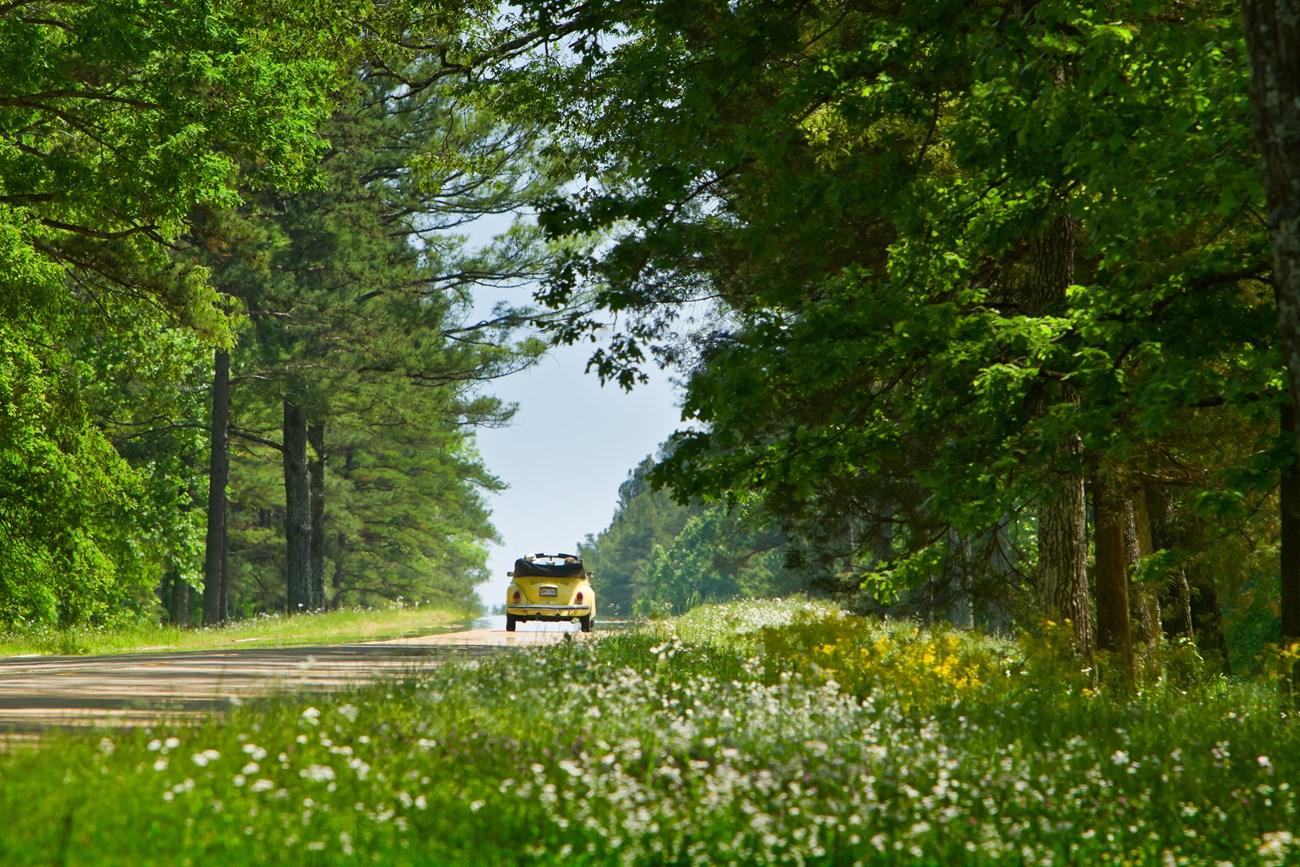
Discover the Serenity of Indian Town Point
Explore the natural beauty and historical allure of Indian Town Point in Antigua, home to the fascinating Devil's Bridge and a haven for birdwatchers and hikers.
Indian Town Point, located on the northeastern coast of Antigua, is a serene and picturesque destination that offers visitors a unique blend of natural beauty and historical significance. This tranquil spot is part of the larger Indian Town National Park, which is known for its rugged cliffs, rich biodiversity, and stunning ocean views. One of the main attractions at Indian Town Point is the Devil's Bridge, a natural limestone arch formed by the relentless pounding of the Atlantic waves. This geological wonder is not only a breathtaking sight but also steeped in history and legend. According to local folklore, the bridge was named for the numerous slaves who perished there, seeking escape from the harsh conditions of plantation life. In addition to its historical significance, Indian Town Point is a haven for nature lovers. The area is home to a variety of bird species, making it a popular spot for birdwatching. Hikers will also find numerous trails that offer panoramic views of the coastline and the surrounding landscape. Whether you're interested in exploring the natural wonders or simply soaking up the peaceful atmosphere, Indian Town Point is a must-visit destination in Antigua and Barbuda.
Local tips in Indian Town Point
- Wear sturdy shoes if you plan to hike the trails, as the terrain can be uneven.
- Visit early in the morning or late in the afternoon to avoid the midday heat.
- Carry binoculars for birdwatching to get a closer look at the diverse bird species.
- Bring water and snacks, as there are limited facilities in the area.
- Respect the natural environment and historical sites by not leaving any litter behind.
Discover the Serenity of Indian Town Point
Indian Town Point, located on the northeastern coast of Antigua, is a serene and picturesque destination that offers visitors a unique blend of natural beauty and historical significance. This tranquil spot is part of the larger Indian Town National Park, which is known for its rugged cliffs, rich biodiversity, and stunning ocean views. One of the main attractions at Indian Town Point is the Devil's Bridge, a natural limestone arch formed by the relentless pounding of the Atlantic waves. This geological wonder is not only a breathtaking sight but also steeped in history and legend. According to local folklore, the bridge was named for the numerous slaves who perished there, seeking escape from the harsh conditions of plantation life. In addition to its historical significance, Indian Town Point is a haven for nature lovers. The area is home to a variety of bird species, making it a popular spot for birdwatching. Hikers will also find numerous trails that offer panoramic views of the coastline and the surrounding landscape. Whether you're interested in exploring the natural wonders or simply soaking up the peaceful atmosphere, Indian Town Point is a must-visit destination in Antigua and Barbuda.
When is the best time to go to Indian Town Point?
Iconic landmarks you can’t miss
Heritage Quay Complex
Discover Heritage Quay Complex in St. John's, a vibrant shopping mall and cruise terminal offering unique local crafts and delicious dining options.
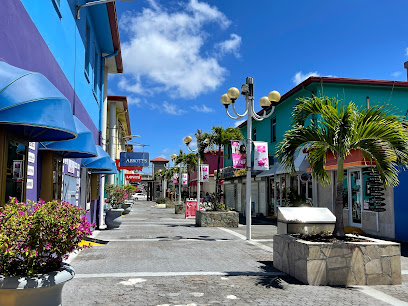
Nelson's Dockyard
Explore the maritime history and stunning architecture of Nelson's Dockyard, a UNESCO World Heritage Site in Antigua, rich with culture and heritage.
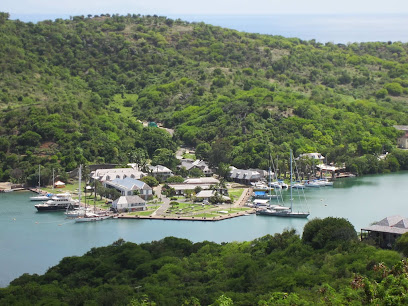
Stingray City Antigua
Dive into an unforgettable marine adventure at Stingray City Antigua, where you can swim with friendly stingrays in a stunning Caribbean setting.
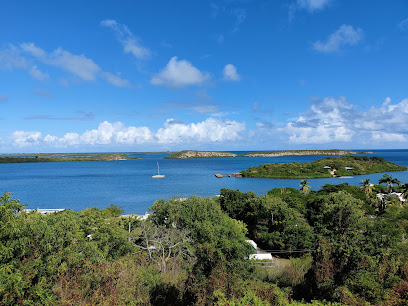
Devil's Bridge National Park
Explore the breathtaking beauty and rich history of Devil's Bridge National Park in Antigua, where stunning landscapes meet fascinating cultural heritage.
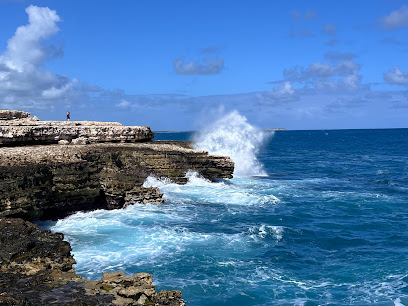
Galleon Beach
Discover the serene beauty of Galleon Beach, a stunning public beach in Antigua, perfect for relaxation, adventure, and unforgettable sunsets.
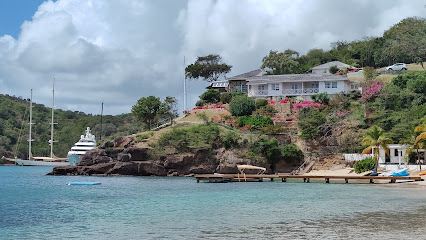
The Blockhouse
Discover the captivating history and stunning vistas at The Blockhouse in Piccadilly, a must-visit historical site in Antigua and Barbuda.
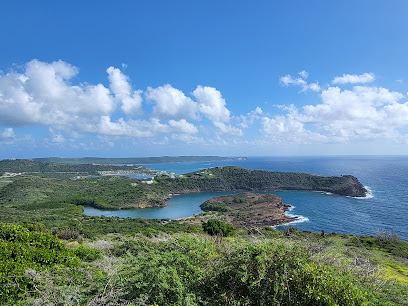
VC Bird Monument
Explore the VC Bird Monument in St. John's, a striking tribute to Antigua and Barbuda's first Prime Minister and a symbol of national pride.
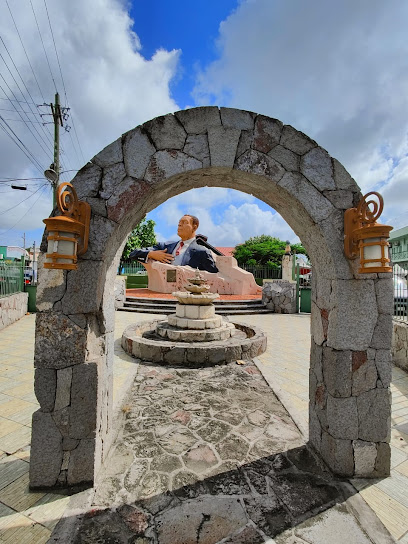
Dickenson Bay Beach
Explore the stunning Dickenson Bay Beach in Antigua, where golden sands meet azure waters and adventure awaits every visitor.
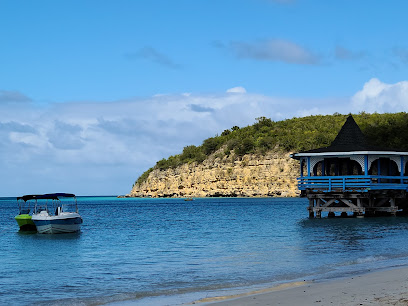
Museum of Antigua and Barbuda
Discover the rich cultural history of Antigua and Barbuda at this captivating museum, showcasing artifacts and stories from the islands' vibrant past.
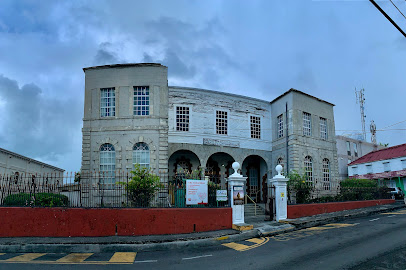
Dow's Hill Interpretation Centre
Discover the heart of Antigua's history and culture at Dow's Hill Interpretation Centre, a scenic gem that captivates every visitor.
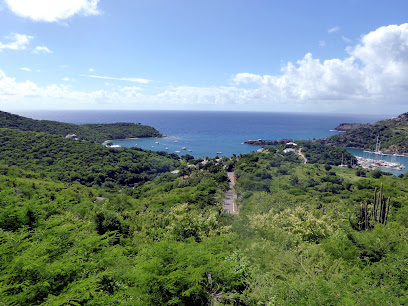
Long Bay Beach
Experience tranquility and adventure at Long Bay Beach, one of Antigua's most stunning coastal gems, perfect for relaxation and water sports.
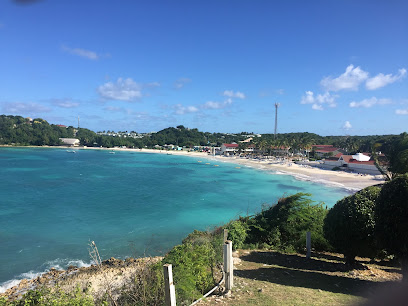
Fort James
Explore the historical significance and breathtaking views at Fort James, a must-visit landmark in St. John's, Antigua, for an unforgettable cultural experience.
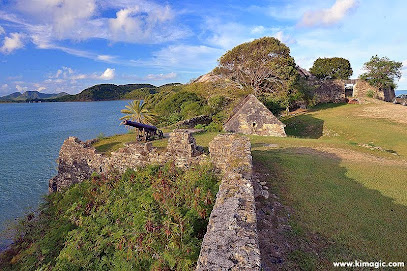
Betty's Hope Historic Sugar Plantation
Explore the historical significance of Betty's Hope, a key landmark in Antigua's sugar plantation era, and immerse yourself in the island's rich heritage.
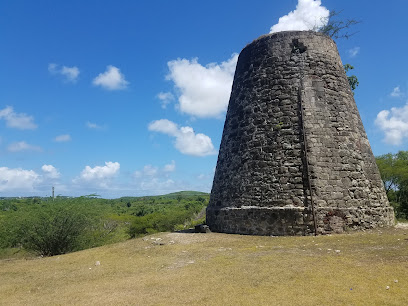
Fort Barrington
Explore the historic Fort Barrington in Antigua, where stunning views and rich colonial history converge for an unforgettable experience.
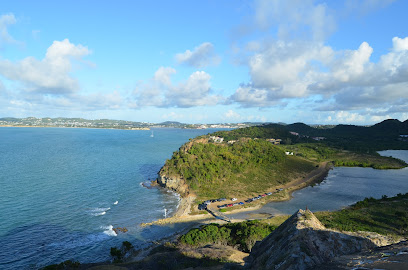
Pillars of Hercules
Explore the breathtaking Pillars of Hercules in Antigua, a stunning natural wonder with rich history and spectacular views, perfect for every traveler.
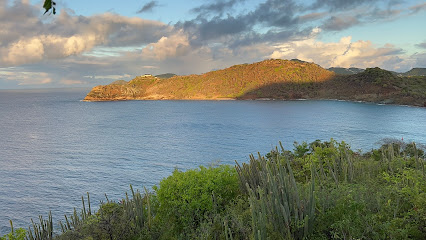
Unmissable attractions to see
Scooter Snorkeling Antigua
Glide through turquoise waters on a sea scooter, exploring vibrant marine life and shipwrecks at Galleon Beach in English Harbour.
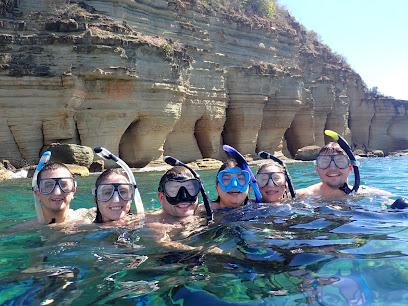
Pig’s Paradise Antigua
Swim, sunbathe, and socialize with adorable pigs at Pig's Paradise Antigua on beautiful Sea Fourth Beach. An unforgettable Caribbean experience!
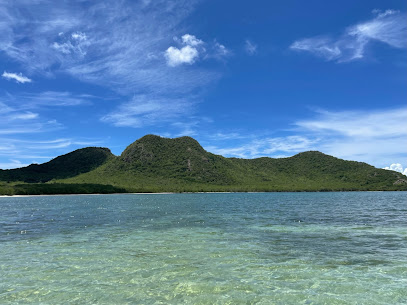
Stingray Antigua
Interact with gentle stingrays in their natural habitat, creating unforgettable memories in Antigua's beautiful Caribbean waters.
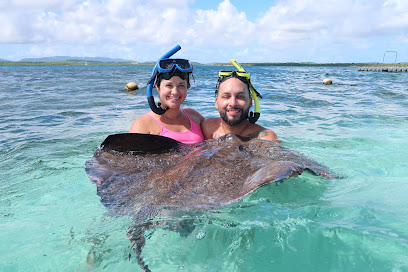
Barnes Hill Reservoir
Escape to the tranquility of Barnes Hill Reservoir in Osbourn, Antigua, for nature, relaxation, and a touch of local history.
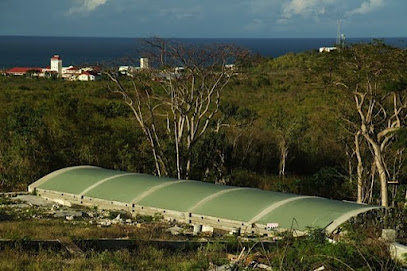
Body Ponds Nature Park
Discover tranquility at Body Ponds Nature Park in Antigua, a serene ecological escape for nature lovers and outdoor enthusiasts.
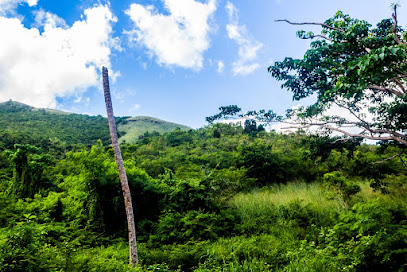
Marassa Cove
Discover the serene beauty of Marassa Cove in Willikies, Antigua – a hidden gem offering tranquility and natural charm for a perfect beach escape.
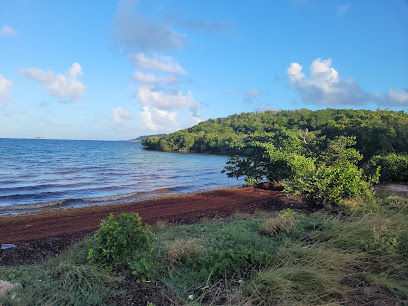
Cactus Hill
Hike Cactus Hill in Antigua for stunning coastal views, panoramic vistas, and a rewarding outdoor adventure!
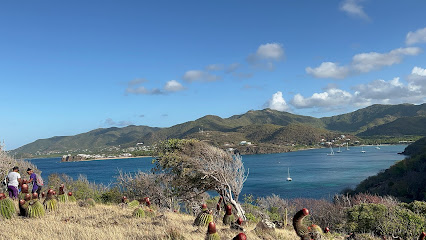
Sweet Wadadli Jungle Rides
Experience Antigua's wild side with thrilling go-kart tours through lush landscapes, local farms, and stunning coastal views. Family-friendly adventure awaits!
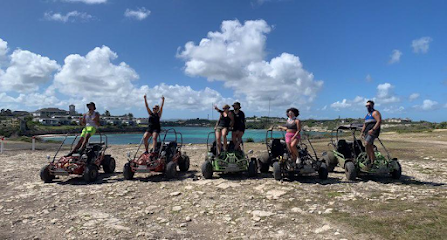
Antigua
Discover Antigua's stunning beaches, rich history, and vibrant culture. Explore historical sites, relax on pristine sands, and enjoy the Caribbean charm.

Blackman's Baobab Tree
Discover the majestic Blackman's Baobab Tree in Osbourn, Antigua, a natural monument offering hiking and cultural enrichment.
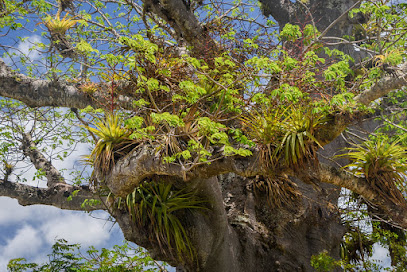
Hudson Point
Discover Hudson Point in FreeTown, Antigua: Scenic hiking trails, breathtaking Caribbean views, and a tranquil escape into nature's beauty.
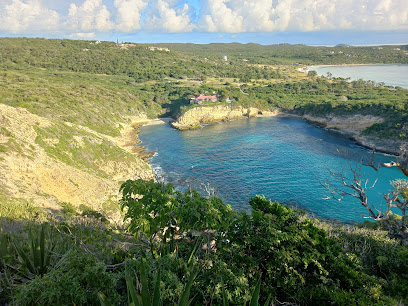
Jabberwock beach
Experience the thrill of kitesurfing and windsurfing on Antigua's beautiful Jabberwock Beach, a haven for watersports and relaxation.

Essential places to dine
Road House Restaurant And Bar
Experience authentic Antiguan cuisine at Road House Restaurant And Bar – where flavors meet hospitality amidst stunning views.
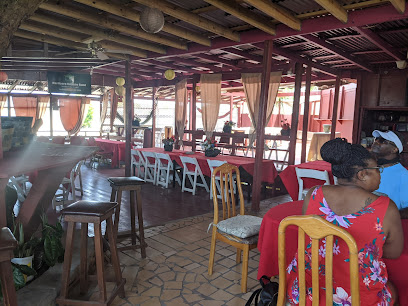
Flatties Flame Grill
Experience the vibrant flavors of Caribbean cuisine at Flatties Flame Grill in English Harbour - a culinary hotspot for food lovers.
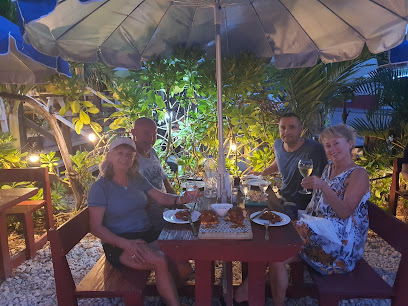
Boom Restaurant
Experience the best of Caribbean cuisine at Boom Restaurant in English Harbour - where flavor meets breathtaking views.
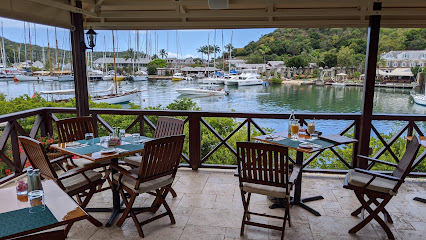
Indian Summer
Discover authentic Indian cuisine at Indian Summer in Antigua - where every dish tells a story of tradition and flavor.
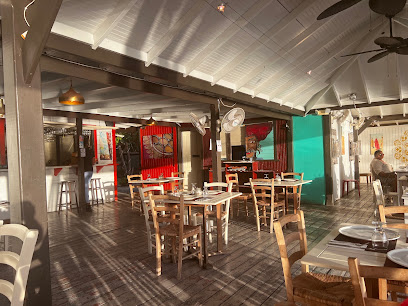
Incanto
Experience the best of Italian dining in English Harbour with stunning views at Incanto – where every meal is a celebration of flavor.
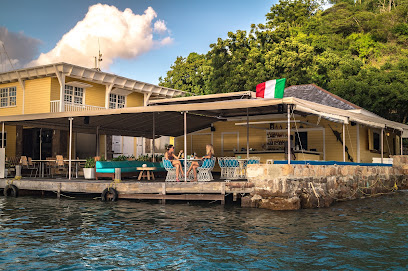
Cool Runnings Restaurant & Bar
Experience authentic Caribbean cuisine at Cool Runnings Restaurant & Bar in St. John's - where flavors come alive!
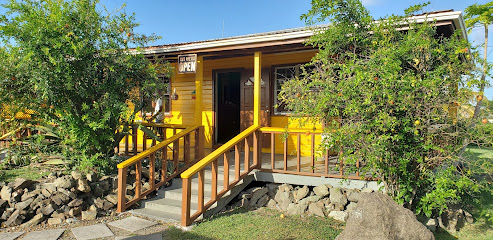
D'cravinz Restaurant & Bar
Experience authentic Antiguan cuisine at D'cravinz Restaurant & Bar - where local flavors meet vibrant ambiance in St. John's.
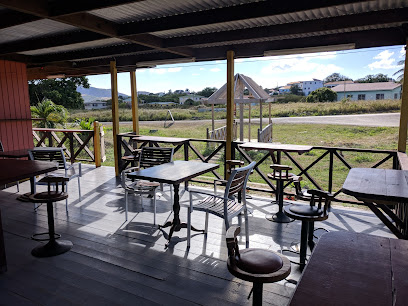
Colibri Bistro Bar Lounge
Discover the exquisite flavors and vibrant nightlife at Colibri Bistro Bar Lounge on Dockyard Drive, a culinary gem in Antigua.
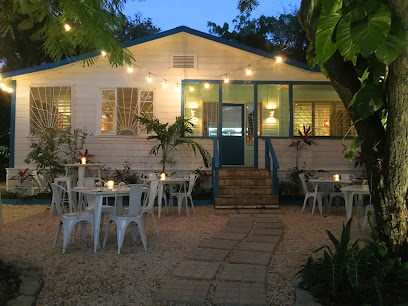
Mama Pasta
Discover authentic Italian cuisine at Mama Pasta in Willikies—where every meal feels like a trip to Italy!

Rokuni
Discover Rokuni: An exquisite Asian dining experience in Willikies, Antigua - where authentic flavors meet Caribbean charm.
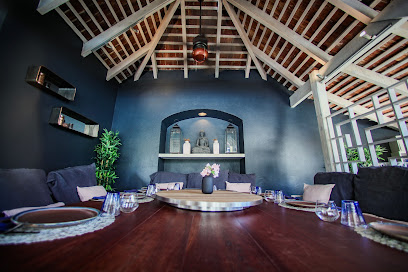
Five Senses Antigua
Experience exquisite Pan Asian cuisine at Five Senses Antigua - where every dish tells a story of flavor and culture.
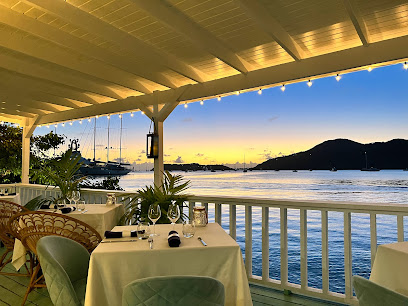
Caribbean Taste
Experience authentic Caribbean cuisine at Caribbean Taste in English Harbour – where flavors meet culture.
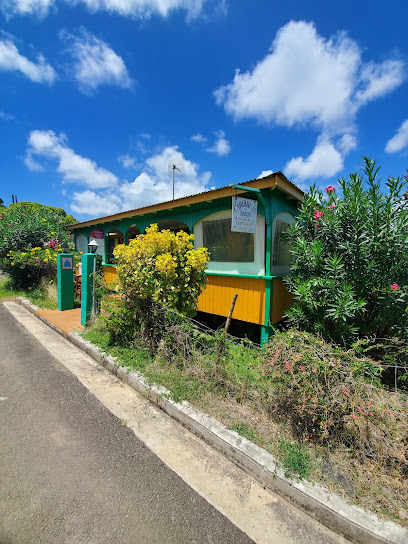
Lucky Eddi's Antigua Sports Bar and Restaurant
Experience authentic Caribbean cuisine paired with vibrant sports entertainment at Lucky Eddi's Antigua Sports Bar and Restaurant.
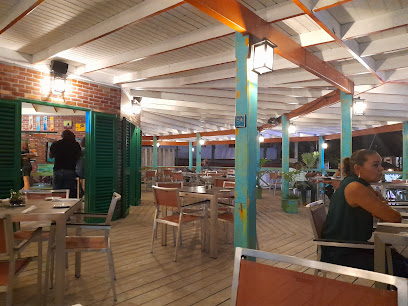
Seaview Restaurant and Bar
Experience delightful Caribbean cuisine at Seaview Restaurant and Bar with stunning ocean views perfect for any occasion.
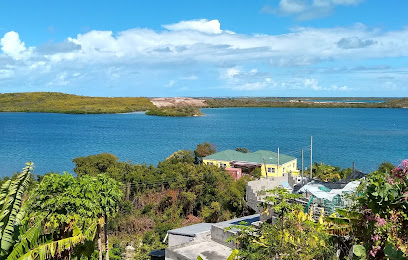
Bumpkins
Experience culinary excellence at Bumpkins in Piccadilly, where local flavors meet international cuisine in a cozy setting.
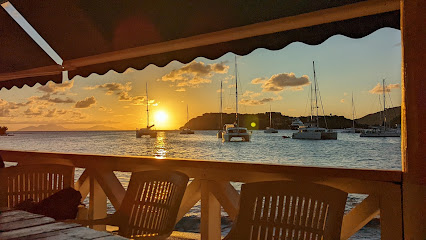
Markets, malls and hidden boutiques
306 Antigua
Explore unique home goods and local crafts at 306 Antigua, a gem in St. John's offering authentic Antiguan souvenirs.
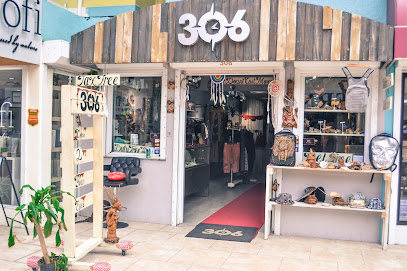
Exotic Antigua
Discover the vibrant essence of the Caribbean through unique fashion at Exotic Antigua, a premier clothing store in St. John's.
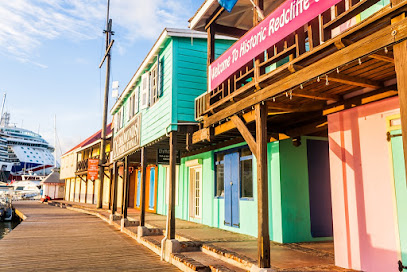
The Posh Pirate Antique Store
Unearth unique finds and vintage treasures at The Posh Pirate Antique Store in Liberta, the ideal spot for antique lovers and treasure hunters.
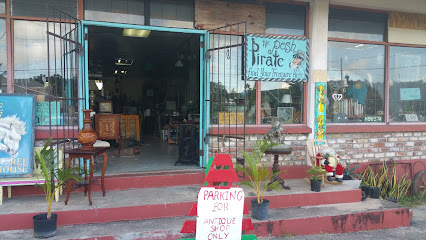
BALLOON OCCASIONS Decorating Service And Party Store
Discover Balloon Occasions in Pares, Antigua and Barbuda – your ultimate destination for colorful party supplies and unforgettable celebrations.
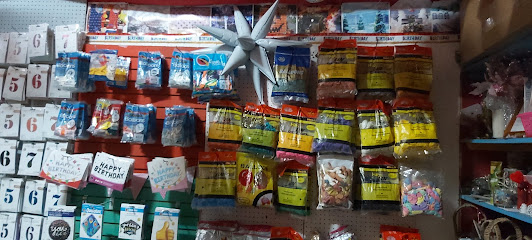
BOSSY MINI MART
Discover the convenience of BOSSY MINI MART in Antigua - your go-to grocery store for local and international essentials.

Sea Island Trading Antigua
Explore unique handcrafted goods at Sea Island Trading Antigua, where local craftsmanship meets Caribbean charm.
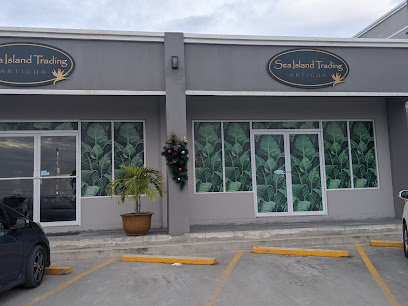
The Cotton House
Discover unique clothing and accessories at The Cotton House in Cobbs Cross, offering an authentic taste of Antiguan fashion and culture.
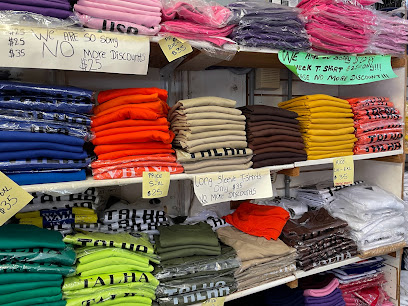
Britt Shop Aeropuerto Antigua
Explore the Britt Shop at Aeropuerto Antigua for unique gifts, local chocolates, and memorable souvenirs capturing the essence of Antigua.
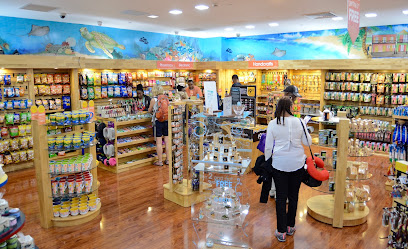
Bold Fashion Boutique
Explore Bold Fashion Boutique in English Harbour for unique clothing and accessories that celebrate individuality and style.
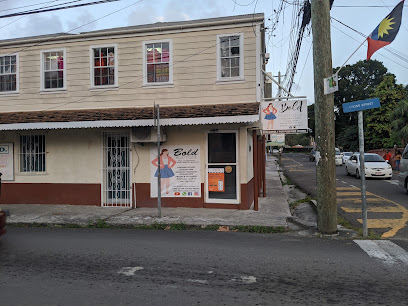
Photofantasy Antigua
Explore Photofantasy Antigua for unique souvenirs and local crafts that capture the spirit of the Caribbean island.

Rae-el Collection
Explore Rae-el Collection in St. Paul's for a unique selection of stationery and art supplies that capture local artistry and creativity.

Mahi's Creations
Discover the sweet taste of local Caribbean flavors at Mahi's Creations Bakery in Willikies, where every bite is a delightful indulgence.

Dotsy’s
Discover unique gifts and local treasures at Dotsy’s Gift Shop inside Blue Waters Resort, a perfect stop for your Caribbean memories.
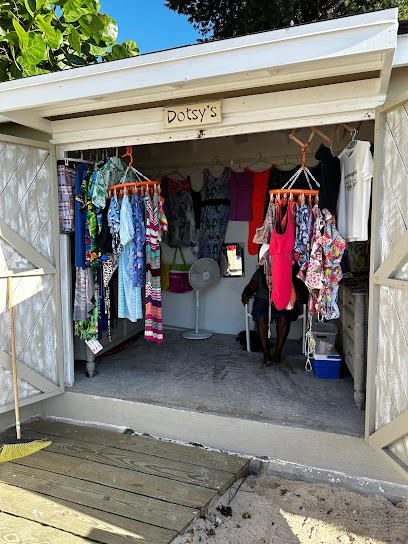
Adoptacoastline
Discover unique local souvenirs and gifts at Adoptacoastline, a charming gift shop on Dockyard Drive that celebrates local culture.

Free Spirit W.I
Explore the vibrant artistry of the Caribbean at Free Spirit W.I in English Harbour, where unique handcrafted treasures await every traveler.
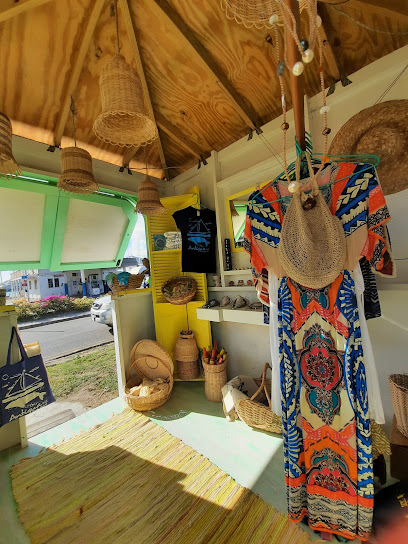
Essential bars & hidden hideouts
The Nest -Beach Bar, Antigua
Discover The Nest Beach Bar in Antigua, where delightful grilled dishes meet stunning ocean views for an unforgettable dining experience.
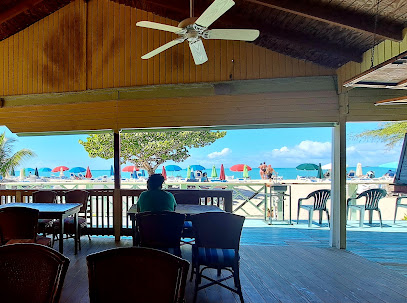
Beach Bum Bar & Cafe
Experience the ultimate relaxation at Beach Bum Bar & Cafe in FreeTown, where tropical vibes meet delicious food and refreshing drinks.
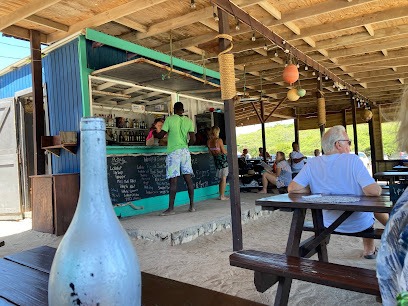
Kon Tiki Bar and Grill
Experience the vibrant flavors of the Caribbean at Kon Tiki Bar and Grill in St. John's, where every meal is a delicious celebration.
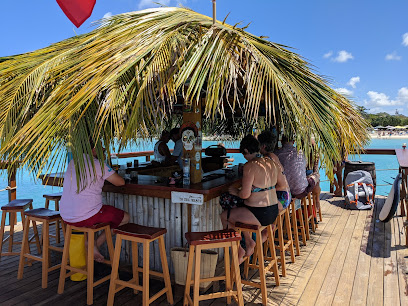
Loose Cannon Beach Bar
Experience the perfect blend of fine dining, cocktails, and water sports at Loose Cannon Beach Bar on Galleon Beach, English Harbour.
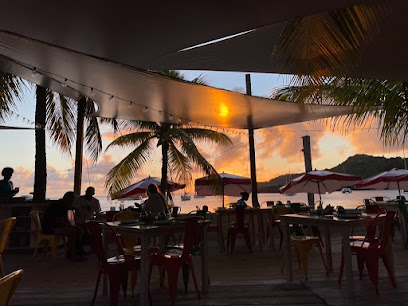
Garrot Blacks Bar & Lounge
Experience the vibrant nightlife of English Harbour at Garrot Blacks Bar & Lounge, where cocktails meet local culture in a stunning Caribbean setting.
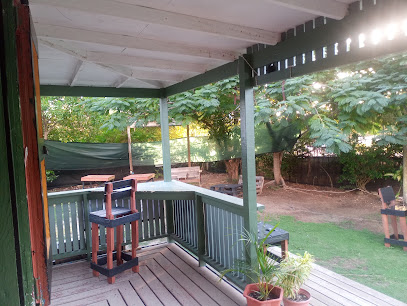
CHRISTIAN SUNSHINE BAR
Discover the lively charm of Christian Sunshine Bar in Piggotts, where you can enjoy refreshing drinks and authentic local culture in a vibrant setting.
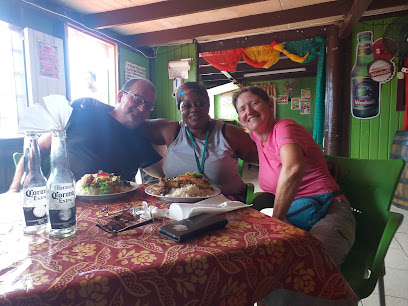
Man Cave Bar & Restaurant
Experience the vibrant flavors of grill cuisine and the lively atmosphere at Man Cave Bar & Restaurant in Saint John's, Antigua.
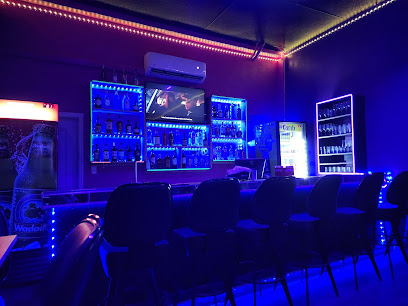
Kennedy's Classic Bar & Deli
Experience the vibrant flavors and local charm at Kennedy's Classic Bar & Deli in St. John's, Antigua, a culinary haven for all visitors.
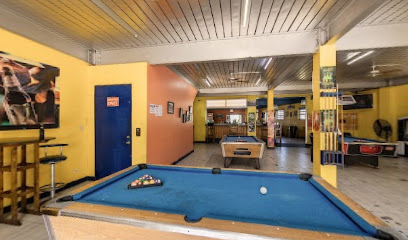
Stables Bar
Experience the vibrant nightlife at Stables Bar in Cassada Gardens, where refreshing cocktails and a lively atmosphere await you.

STREET LIVE BAR
Experience St John's nightlife at Street Live Bar, where vibrant music, delicious drinks, and a welcoming atmosphere await every visitor.
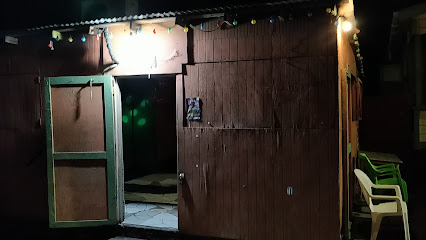
The Locos Enterprise
Experience the vibrant nightlife at The Locos Enterprise, a premier bar in Willikies, where refreshing drinks and local flavors await you.
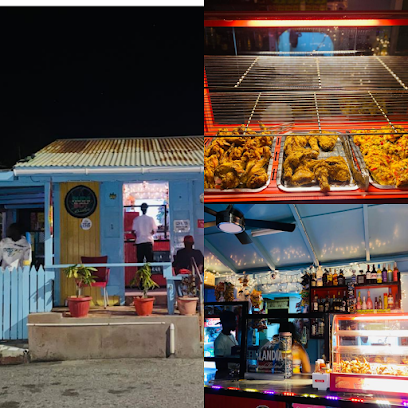
SIDEVIEW BAR & GRILL
Discover the lively atmosphere of SIDEVIEW BAR & GRILL in All Saints, where great food, refreshing drinks, and local culture come together.
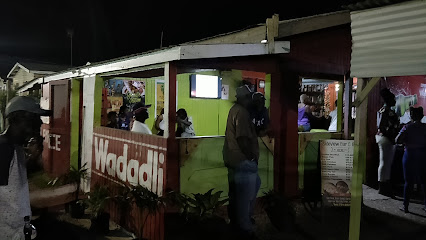
ROSEENS BAR
Experience the vibrant culture of Liberta at Roseens Bar, where delicious drinks meet a warm local atmosphere.

Drunken duck
Experience the vibrant nightlife at Drunken Duck, a lively bar in St. John's, Antigua, where music, drinks, and a friendly atmosphere await.
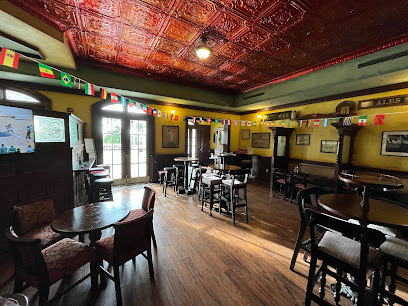
Local Phrases about Indian Town Point
-
- HelloJai
[Jai] - GoodbyeAlvida
[Al-vee-da] - YesHaan
[Haan] - NoNahi
[Na-hee] - Please/You're welcomeKripaya
[Kri-pa-ya] - Thank youDhanyavad
[Dhun-ya-vud] - Excuse me/SorryMaaf kijiye
[Maaf ki-ji-ye] - How are you?Aap kaise hain?
[Aap kai-se hain?] - Fine. And you?Accha. Aur aap?
[Ach-cha. Aur aap?] - Do you speak English?Kya aap angrezi bolte hain?
[Kya aap ang-re-zi bol-te hain?] - I don't understandMujhe samajh nahi aaya
[Muj-he sa-majh na-hee a-ya]
- HelloJai
-
- I'd like to see the menu, pleaseKripya menu dikhaye
[Kri-pya me-nu dik-ha-ye] - I don't eat meatMai mans nahi khata
[Mai mans na-hee kha-ta] - Cheers!Chak de
[Chak de] - I would like to pay, pleaseKripya mujhe bhugtaan karna hai
[Kri-pya muj-he bhug-taan kar-na hai]
- I'd like to see the menu, pleaseKripya menu dikhaye
-
- Help!Madad karo!
[Ma-dad ka-ro!] - Go away!Chale jao!
[Cha-le ja-o!] - Call the Police!Police ko bulao!
[Po-lice ko bu-lao!] - Call a doctor!Doctor ko bulao!
[Dock-tor ko bu-lao!] - I'm lostMein khoya hoon
[Mein kho-ya hoon] - I'm illMein bimar hoon
[Mein bi-mar hoon]
- Help!Madad karo!
-
- I'd like to buy...Mujhe kharidna hai...
[Muj-he kha-rid-na hai...] - I'm just lookingMein bas dekh raha hoon
[Mein bas dekh ra-ha hoon] - How much is it?Yeh kitne ka hai?
[Yeh kit-ne ka hai?] - That's too expensiveYe bahut mehenga hai
[Ye ba-hut me-hen-ga hai] - Can you lower the price?Kya aap price kam kar sakte hain?
[Kya aap price kam kar sak-te hain?]
- I'd like to buy...Mujhe kharidna hai...
-
- What time is it?Kitne baje hain?
[Kit-ne ba-je hain?] - It's one o'clockEk baje hain
[Ek ba-je hain] - Half past (10)Dus baje adhe hain
[Dus ba-je ad-he hain] - MorningSubah
[Su-bah] - AfternoonDopahar
[Do-pa-har] - EveningSham
[Sh-am] - YesterdayKal
[Kal] - TodayAaj
[Aaj] - TomorrowKal
[Kal] - 1Ek
[Ek] - 2Do
[Do] - 3Teen
[Teen] - 4Char
[Char] - 5Paanch
[Paanch] - 6Chhe
[Chhe] - 7Saat
[Saat] - 8Aath
[Aath] - 9Nau
[Nau] - 10Das
[Das]
- What time is it?Kitne baje hain?
-
- Where's a/the...?Kahan hai...?
[Ka-han hai...?] - What's the address?Pata kya hai?
[Pa-ta kya hai?] - Can you show me (on the map)?Kya aap mujhe dikhayenge (map par)?
[Kya aap mujhe dik-ha-ye-nge (map par)?] - When's the next (bus)?Agla bus kab hai?
[Ag-la bus kab hai?] - A ticket (to ....)Ek ticket (.... ko)
[Ek ticket (.... ko)]
- Where's a/the...?Kahan hai...?
History of Indian Town Point
-
Indian Town Point, situated on the northeastern coast of Antigua, was originally inhabited by the indigenous Arawak and Carib peoples. These early settlers thrived on fishing and agriculture, establishing a rich cultural heritage that is still evident in archaeological finds today. The area served as a vital point for trade and communication among the islands of the Caribbean.
-
In the late 15th and early 16th centuries, European explorers, including Christopher Columbus, began to chart the Caribbean Sea. During this period, Indian Town Point became a significant landmark for these navigators. The natural beauty and strategic location of the area did not go unnoticed, setting the stage for subsequent colonial interests.
-
By the mid-17th century, Antigua had become a British colony, and Indian Town Point was developed as a lookout point to monitor the surrounding waters for incoming ships. The British recognized the strategic importance of this location for both defense and trade. Fortifications and signal stations were established to safeguard against potential invasions.
-
The introduction of sugar cane cultivation in the 18th century transformed Antigua's economy, and Indian Town Point was no exception. The fertile lands surrounding the area were used for sugar plantations, which relied heavily on enslaved labor. The remnants of these plantations, including mills and estate houses, can still be visited, offering a glimpse into this dark chapter of history.
-
Antigua and Barbuda gained independence from British rule in 1981, marking the beginning of a new era for Indian Town Point. The area has since been developed for tourism, with efforts to preserve its historical and natural heritage. Modern amenities blend seamlessly with historical landmarks, offering visitors a unique experience that honors the past while embracing the future.
-
Today, Indian Town Point is not just a historical site but also a cultural beacon. The area hosts various cultural events and festivals that celebrate the rich heritage of Antigua and Barbuda. From traditional music and dance to local cuisine, visitors can immerse themselves in the vibrant culture that has evolved over centuries.
Indian Town Point Essentials
-
Indian Town Point is located on the eastern coast of Antigua. The nearest international airport is V.C. Bird International Airport in St. John's, approximately 25 kilometers away. From the airport, you can take a taxi or rent a car to reach Indian Town Point. The drive typically takes around 40 minutes. Alternatively, some hotels and resorts offer shuttle services for their guests.
-
Indian Town Point is a compact area, and many of its attractions are within walking distance. For longer trips, local taxis are readily available and relatively inexpensive. Public buses operate within the area and connect to nearby towns and villages. Renting a car is also a convenient option for exploring the island at your own pace. Additionally, some accommodations offer bicycle rentals, which can be a fun way to explore the surroundings.
-
The official currency in Antigua and Barbuda is the Eastern Caribbean Dollar (XCD). US Dollars are also widely accepted. Credit cards are accepted in most hotels, restaurants, and shops, but it is advisable to carry some cash for smaller establishments and street vendors. ATMs are available in major towns, including St. John's, but it is wise to withdraw sufficient cash before heading to more remote areas like Indian Town Point.
-
Indian Town Point is generally a safe destination for tourists. However, like any travel destination, it is advisable to take standard precautions. Avoid walking alone at night in unfamiliar areas and keep an eye on your belongings in crowded places. While Indian Town Point has a low crime rate, it is always best to stay vigilant and aware of your surroundings.
-
In case of emergency, dial 911 for immediate assistance. The nearest medical facilities are located in St. John's, which is about a 40-minute drive from Indian Town Point. It is recommended to have travel insurance that covers medical emergencies. For minor health issues, there are pharmacies in nearby towns where you can purchase over-the-counter medications.
-
Fashion: Do dress comfortably for the tropical climate, but avoid overly revealing clothing, especially in more conservative areas. Religion: Do respect local customs and traditions. When visiting churches, dress modestly and cover your shoulders. Public Transport: Do be respectful and give up your seat to elderly passengers. Don't eat or drink on public transport. Greetings: Do greet people with a friendly 'hello' or 'good day'. A handshake is also common. Eating & Drinking: Do try local delicacies and accept food offerings graciously. Don't refuse hospitality, as it is considered impolite.
-
To experience Indian Town Point like a local, visit the local markets where you can buy fresh produce and traditional Antiguan goods. Engage with locals, as they are often friendly and willing to share stories about the area’s history and culture. Don’t miss visiting the historic sites such as Devil’s Bridge and the nearby Indian Town National Park. For a unique experience, take a guided nature tour to learn about the local flora and fauna.
Trending Landmarks in Indian Town Point
-
Heritage Quay Complex
-
Nelson's Dockyard
-
Stingray City Antigua
-
Devil's Bridge National Park
-
Galleon Beach
-
The Blockhouse
-
VC Bird Monument
-
Dickenson Bay Beach
-
Museum of Antigua and Barbuda
-
Dow's Hill Interpretation Centre
-
Long Bay Beach
-
Fort James
-
Betty's Hope Historic Sugar Plantation
-
Fort Barrington
-
Pillars of Hercules
Nearby Cities to Indian Town Point
-
Things To Do in Freetown
-
Things To Do in All Saints
-
Things To Do in Liberta
-
Things To Do in English Harbour
-
Things To Do in Falmouth
-
Things To Do in St. John's
-
Things To Do in Dickenson Bay
-
Things To Do in Bolands
-
Things To Do in Jolly Harbour
-
Things To Do in Woodlands
-
Things To Do in Gingerland
-
Things To Do in Newcastle
-
Things To Do in Cotton Ground
-
Things To Do in Charlestown
-
Things To Do in Basseterre




